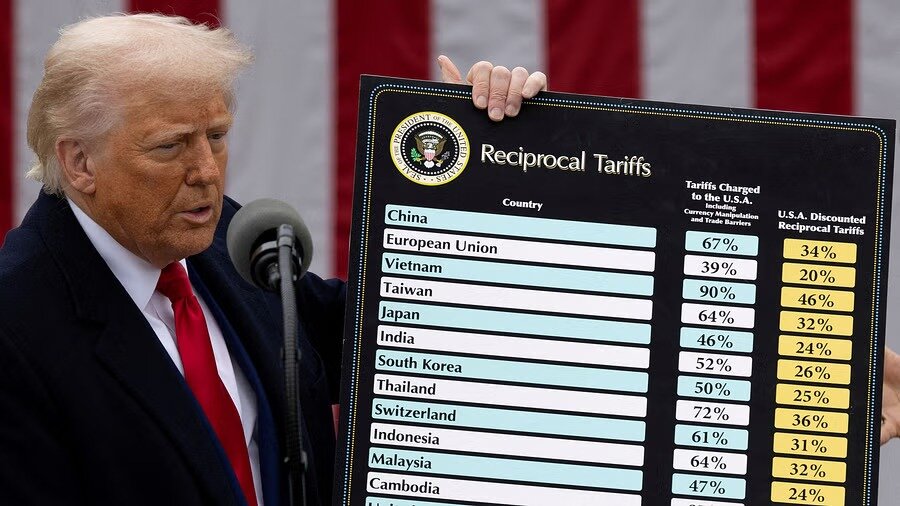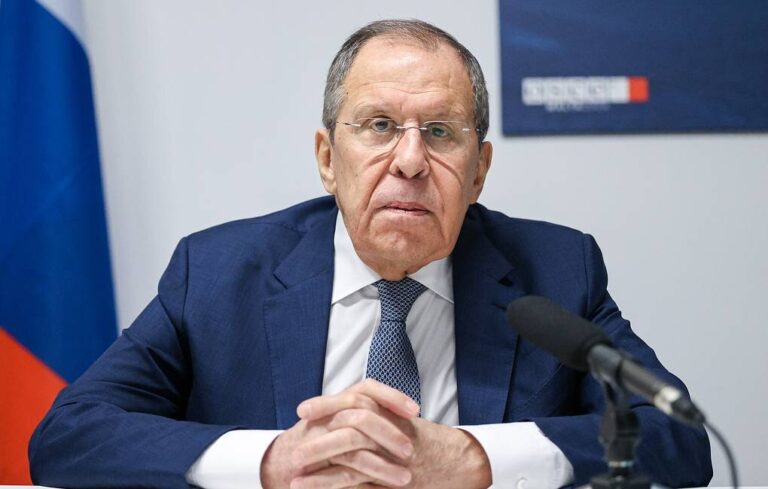China Strikes Back: Why the US May Face Major Losses in the Trade War
China’s recent announcement of imposing significant tariffs on U.S. imports marks a critical escalation in the ongoing trade conflict between the two nations. As the global trade landscape shifts, the implications for both countries and the world economy are profound. This article delves into the details of the tariffs and the broader ramifications of this trade war.
On a pivotal Friday, China declared a 34 percent tariff on all imports from the United States, set to take effect the following Thursday. This decision aligns with Beijing’s commitment to retaliate against the trade measures initiated by President Donald Trump, which have been characterized as a unilateral approach to trade.
Earlier in the week, President Trump had introduced a staggering 54 percent tariff on all Chinese exports to the U.S. This new tariff included an additional 34 percent charge on top of the existing 20 percent duties, escalating tensions between the two economic giants. Since taking office, Trump has already imposed two rounds of 10 percent extra duties on all Chinese imports, with these new measures scheduled to take effect on Wednesday.
The market reacted sharply to China’s announcement, with U.S. stock markets plummeting on Friday. Chinese Foreign Ministry spokesperson Guo Jiakun remarked, “The market has spoken,” highlighting the immediate economic impact of the trade tensions.
In an official statement, the Chinese government expressed its stance against what it termed the United States’ “abuse” of tariffs, stating, “Using tariffs as a tool of extreme pressure for selfish gain is a textbook example of unilateralism, protectionism, and economic bullying.” The statement further asserted that the U.S. approach promotes a zero-sum game, ultimately seeking to prioritize American interests at the expense of global fairness.
China emphasized that “there are no winners in trade wars or tariff wars, and protectionism leads to a dead end.” The government declared, “We don’t make trouble, but we have no fear of trouble,” asserting its commitment to defend its sovereignty, security, and development interests from external pressures.
The ramifications of Trump’s tariff policies have ignited widespread protests across the United States. Thousands have taken to the streets to demonstrate against his measures, including the controversial “reciprocal tariffs.” On Saturday, approximately 600,000 participants gathered for over 1,400 protests across all 50 states, rallying under the slogan “Hands Off.”
Criticism of the tariffs extends beyond public protests; analysts and media outlets have raised alarms about the potential economic fallout. Notably, The New York Times has reported that the U.S. agricultural sector could face losses in the tens of billions of dollars due to China’s retaliatory measures. In 2024 alone, China imported over $27 billion worth of U.S. agricultural exports, making it one of the largest markets for American farm goods.
- China’s import of U.S. agricultural products in 2024 exceeded $27 billion.
- China ranks as the third-largest importer of American farm goods, following Mexico and Canada.
- The tariffs could lead to significant economic hardships for American farmers.
International perspectives on the trade conflict reveal further complexities. Tania Georgieva Glouhtcheva, head of the International Department of Bulgaria’s DUMA newspaper, indicated that the U.S. may ultimately be the biggest loser in this trade war, as China seeks to penetrate markets in developing nations. She stated, “In my opinion, Donald Trump is and always will be a businessman and not a politician. Therefore, he will always seek profit when it comes to making money. China has dignity and doesn’t like it when someone decides to change the rules because of their greediness.”
Glouhtcheva added, “China will find new markets in developing countries. This could be a win-win situation for both China and those nations. The only loser will be the U.S.”
Foreign policy expert Afifeh Abedi also weighed in on the conflict, highlighting the significance of the tariffs imposed on China compared to those levied on other countries. She noted that China has emerged as a formidable opponent, showcasing its growing power on the global stage.
Abedi made comparisons between the strength of the former Soviet Union and China’s current status, noting that while the Soviet Union relied heavily on military might, China has diversified its approach. “The strength of the Soviet Union was primarily derived from hard power, utilizing the threat of military conflict to gain concessions from the United States. In contrast, China is not only developing its hard power but also incorporating multiple aspects of soft power,” she explained.
She further emphasized, “The primary distinction lies in China’s remarkable accumulation of soft power, achieved through the advancement of affordable, accessible technologies and its overseas economic investments.” This integration into the global economy has positioned China as a formidable rival to the United States, with projections indicating that it may surpass the U.S. to become the world’s largest economy by 2035 or even earlier.
As the trade conflict unfolds, concerns about China’s advancements in technology, particularly in robotics and artificial intelligence (AI), have heightened anxieties in the United States. With each passing day, the stakes in this trade war continue to rise, underscoring the need for diplomatic solutions to avoid further escalation.






